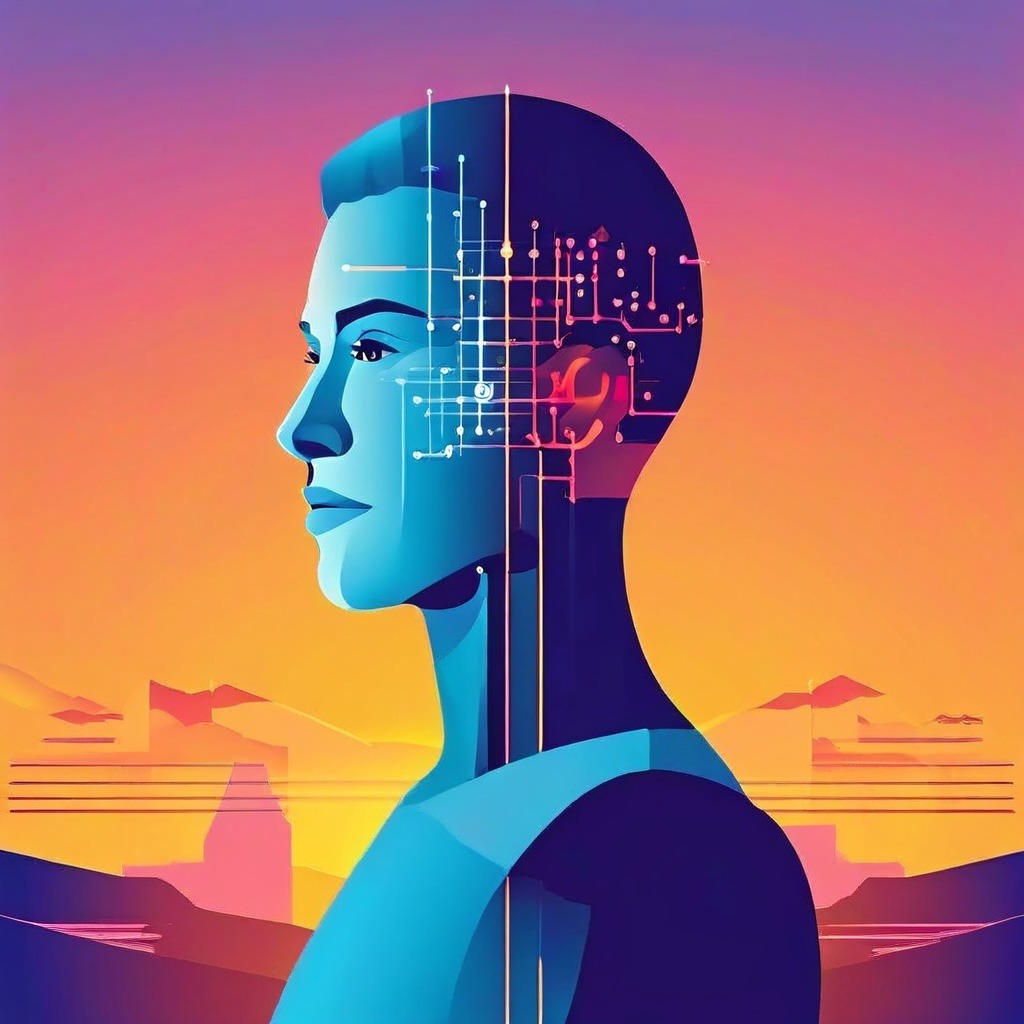Table of Contents
Generative AI and Artificial General Intelligence (AGI) are two significant concepts in the field of artificial intelligence, each representing a different aspect and potential of AI technology. To understand these concepts, let’s delve into them separately and then explore their differences.
Generative AI
Generative AI refers to a type of artificial intelligence that specializes in creating new content, whether it be text, images, music, or even code, that didn’t previously exist. This is achieved through algorithms that learn patterns and features from existing data and use this understanding to generate new, original outputs.
- How Generative AI Works: The process begins with training. Generative AI models are fed large amounts of data. For instance, if the goal is to generate images, the AI is trained on a vast database of images. The AI learns from this data, understanding intricate patterns, styles, and structures. Once trained, the AI can produce new content that resembles the training data but is original in its composition.
- Applications: The applications of generative AI are vast. In the field of art, it can create new paintings or music. In business, it can generate marketing content or product designs. In technology, it can write code or automate creative processes. The healthcare sector uses it for drug discovery by generating molecular structures.
- Examples: Popular examples include text-generation models like GPT (Generative Pre-trained Transformer) and image-generation models like DALL-E. These models can write essays, create artwork, or even compose music, demonstrating a level of creativity and versatility.

Artificial General Intelligence (AGI)
Artificial General Intelligence represents a more advanced and theoretical stage of AI development. AGI refers to a machine’s ability to understand, learn, and apply its intelligence to solve any problem, much like a human being. Unlike specialized AI, which excels in specific tasks, AGI would possess a comprehensive, flexible intellect.
- Understanding AGI: AGI is not just about performing tasks; it’s about understanding and reasoning at a human level. An AGI system would be capable of generalizing its learning from one domain to another, demonstrating creativity, emotional intelligence, and the ability to form beliefs and desires.
- The Goal of AGI: The primary goal of AGI is to create machines that are as intelligent and capable as humans in every aspect. This includes the ability to learn from limited information, adapt to new situations, understand complex concepts, and even possess self-awareness.
- Current Status: As of now, AGI remains largely theoretical. Current AI systems, including the most advanced ones, are far from achieving true general intelligence. They are limited to their training and the specific tasks they are designed for.
Differences Between Generative AI and AGI
- Scope of Intelligence: The most significant difference lies in the scope of their intelligence. Generative AI is highly specialized and works within the confines of its training. AGI, on the other hand, aims for a broad, flexible intelligence that can adapt to any task, similar to a human.
- Learning and Adaptation: Generative AI learns from specific data sets and generates content based on this learning. It cannot easily transfer its learning to unrelated domains. AGI, in contrast, would be capable of learning from a variety of experiences and applying its intelligence across a wide range of domains.
- Complexity and Capability: While generative AI can create impressive content, it lacks understanding and reasoning. It cannot form beliefs, desires, or exhibit emotional intelligence. AGI encompasses these human-like qualities, aiming for a level of complexity and capability that mirrors human cognition.
- Development Stage: Generative AI is a current reality. We see its applications in various industries today. AGI remains a future goal, a concept that is still in the theoretical or early development stages without practical realization.
- Ethical and Societal Impact: The ethical considerations for both are vastly different. Generative AI raises questions about authorship, creativity, and the value of human-generated versus AI-generated content. AGI, however, brings forth more profound ethical dilemmas, such as the rights of a sentient machine, its impact on employment, and the potential risks of a superintelligent being.
In conclusion, while generative AI and AGI are both part of the broader field of artificial intelligence, they represent different ends of the spectrum in terms of capabilities, complexity, and development stages. Generative AI, with its ability to create new content, is a testament to the advances in specialized AI applications. AGI, meanwhile, remains a visionary goal, representing the pinnacle of what artificial intelligence could one day achieve, embodying a level of intelligence and versatility that rivals human cognition.
The Future of Generative AI and AGI
The potential applications of generative AI and AGI are vast and still being explored. Here are some interesting directions these fields might take in the future:
- Generative AI for Personalized Experiences: Imagine a world where generative AI can create custom experiences for everything from education to entertainment. For example, generative AI could personalize learning materials for each student, or create interactive games that adapt to the player’s skill level.
- AGI and the Democratization of Knowledge: AGI could revolutionize access to information and knowledge. Imagine a system that can translate languages perfectly, or that can access and synthesize information from all corners of the internet to answer your questions in a comprehensive and informative way.
- The Role of Human-AI Collaboration: The future of AI is likely to be one of collaboration between humans and machines. Generative AI can be a powerful tool to augment human creativity and productivity. AGI could assist us in solving complex problems that require a vast amount of knowledge and reasoning.
The Need for Responsible AI Development
As generative AI and AGI continue to develop, it is important to consider the ethical implications of these technologies. Here are some key areas to focus on:
- Transparency and Bias: Generative AI models can reflect the biases present in the data they are trained on. It is important to develop transparent AI systems that can be audited for bias and fairness.
- Explainability and Control: As AI systems become more complex, it is important to ensure that they are explainable and controllable. We need to be able to understand how AI systems make decisions and have a way to override them if necessary.
- Alignment with Human Values: It is important to align the development of AI with human values. We need to ensure that AI systems are used for good and that they do not pose a threat to humanity.
The Impact of AI on Society
The development of generative AI and AGI has the potential to profoundly impact society. Here are some areas to consider:
- The Future of Work: As AI becomes more sophisticated, it is likely to automate many jobs that are currently performed by humans. This raises important questions about the future of work and the need for retraining and upskilling the workforce.
- The Distribution of Wealth and Power: The development of AI could exacerbate existing inequalities in wealth and power. It is important to ensure that the benefits of AI are shared broadly and that AI does not lead to a concentration of power in the hands of a few.
- The Meaning of Humanity: The development of AGI could force us to reconsider what it means to be human. If machines can achieve human-level intelligence, what makes us special?
By considering these future directions, ethical considerations, and societal impacts, we can ensure that generative AI and AGI are developed and used in a responsible and beneficial way.
HERE is another interesting blog post on the subject from The Missing Prompt.
HERE is A guide to the best books about artificial intelligence from the New York Times




